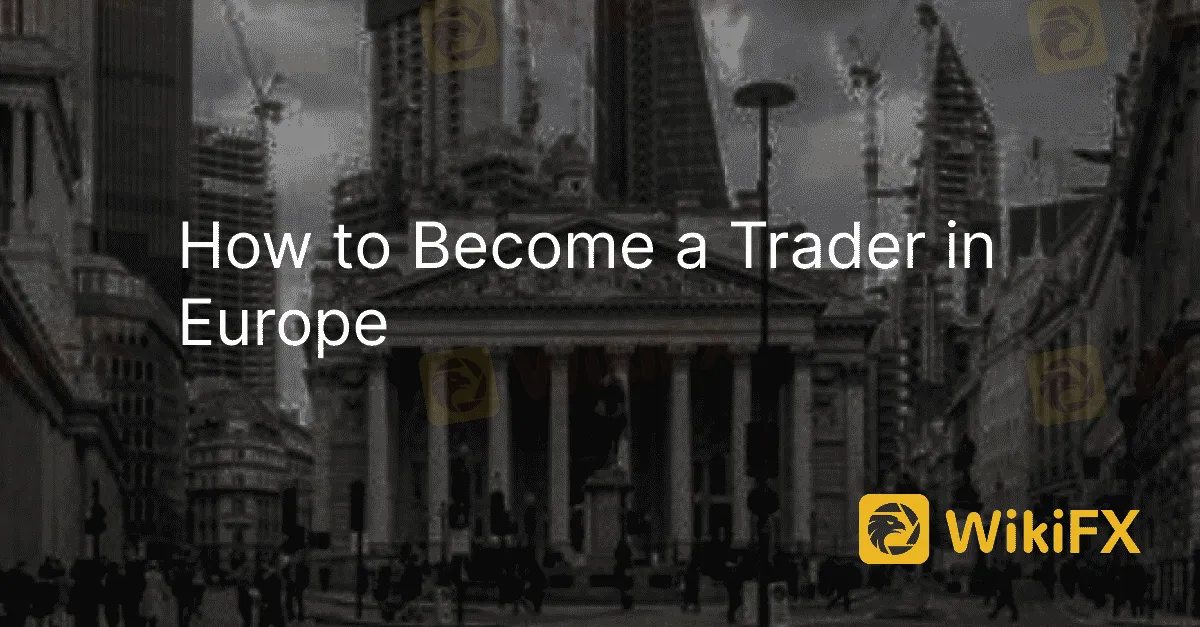简体中文
繁體中文
English
Pусский
日本語
ภาษาไทย
Tiếng Việt
Bahasa Indonesia
Español
हिन्दी
Filippiiniläinen
Français
Deutsch
Português
Türkçe
한국어
العربية
How to Become a Trader in Europe
Abstract:Becoming a trader in Europe offers an exciting opportunity to participate in the dynamic world of financial markets. Whether you aspire to trade stocks, commodities, or forex, here are some steps to guide you on your journey to becoming a trader in Europe.

Becoming a trader in Europe offers an exciting opportunity to participate in the dynamic world of financial markets. Whether you aspire to trade stocks, commodities, or forex, here are some steps to guide you on your journey to becoming a trader in Europe.
Educate Yourself: Start by gaining a solid understanding of financial markets and trading concepts. Familiarize yourself with basic terminology, technical and fundamental analysis, risk management, and trading psychology. Online resources, courses, and educational platforms like WikiFX can provide valuable insights.
Choose Your Market: Decide which financial market you want to trade. Europe offers a diverse range of markets, including stocks, commodities, and forex. Consider your interests, risk tolerance, and the time you can dedicate to trading.
Select a Trading Style: Determine your preferred trading style. Are you more inclined towards day trading, swing trading, or long-term investing? Each style requires different skills and strategies. Experiment with different approaches to find the one that suits you best.
Find a Broker: Research and choose a reputable broker that aligns with your trading needs. Look for brokers regulated by reputable authorities such as the FCA or CySEC. Platforms like WikiFX can help you find reliable brokers in Europe.
Develop a Trading Plan: Create a trading plan that outlines your goals, risk tolerance, entry/exit strategies, and money management rules. A well-defined plan helps you stay disciplined and focused amidst market fluctuations.
Practice with Demo Accounts: Before trading with real money, practice using demo accounts offered by brokers. This allows you to test your strategies and gain confidence without risking your capital.
Start Small: Begin with a small trading capital and gradually increase your exposure as you gain experience and confidence. Remember that trading involves risks, and it is crucial to manage your capital wisely.
Learn from Mistakes: Expect to make mistakes along the way. Treat each trade as a learning opportunity and analyze your successes and failures. Continuous learning and adaptation are key to improving as a trader.
Stay Informed: Keep yourself updated with market news, economic indicators, and geopolitical events that can impact the markets. Platforms like WikiFX provide reliable news and analysis to help you make informed trading decisions.
Manage Emotions: Trading can be emotionally challenging. Learn to control your emotions and avoid impulsive decisions. Embrace discipline and stick to your trading plan.
Remember, becoming a successful trader takes time, dedication, and continuous learning. Utilize the resources available, like WikiFX, to enhance your trading journey in Europe.

Disclaimer:
The views in this article only represent the author's personal views, and do not constitute investment advice on this platform. This platform does not guarantee the accuracy, completeness and timeliness of the information in the article, and will not be liable for any loss caused by the use of or reliance on the information in the article.
Read more

Why Do You Feel Scared During Trade Execution?
Trade execution is a pivotal moment for traders. It is when analysis turns into action, and potential profits or losses become reality. However, for many traders, this moment is accompanied by fear. Why does this happen, and how can you address it?

Pros and Cons of Choosing Unregulated Forex Brokers
Discover the pros and cons of unregulated forex brokers, explore risks, benefits, and key features, and learn how to evaluate their credibility with the WikiFX app.

5 Questions to Ask Yourself Before Taking a Trade
Before executing any trade, traders should pause and ask themselves critical questions to ensure they are making rational and well-informed decisions. Here are five questions to help you reflect on your strategy, manage risk, and control emotions before entering the market.

The Psychology of Investment Scams: Understanding Why Victims Fall Prey
Investment scams have become increasingly sophisticated, preying on human psychology to exploit vulnerabilities. While these fraudulent schemes promise extraordinary returns, they often rely on psychological tactics to deceive victims. Understanding these factors can help traders recognise and avoid falling for scams.
WikiFX Broker
Latest News
Volkswagen agrees deal to avoid Germany plant closures
Geopolitical Events: What They Are & Their Impact?
Top 10 Trading Indicators Every Forex Trader Should Know
TradingView Launches Liquidity Analysis Tool DEX Screener
MultiBank Group Wins Big at Traders Fair Hong Kong 2024
WikiEXPO Global Expert Interview: Simone Martin—— Exploring Financial Regulation Change
'Young investors make investment decisions impulsively to keep up with current trends' FCA Reveals
Why Do You Feel Scared During Trade Execution?
CySEC Settles Compliance Case with Fxview Operator Charlgate Ltd
Scope Markets Review: Trustworthy or Risky?
Currency Calculator


